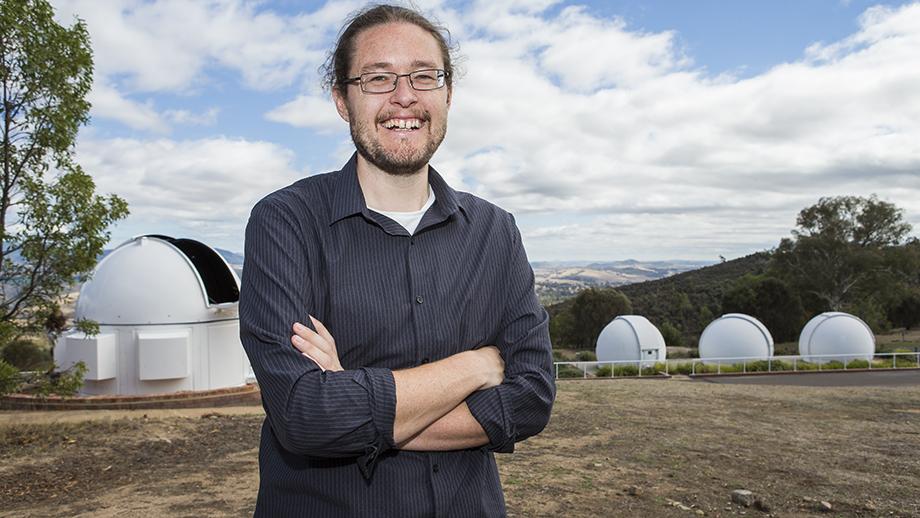Astronomers have witnessed a star being ripped apart by a supermassive black hole in what they say is a “rare phenomenon”.
The process is called ‘spaghettification’, and is the closest flare ever recorded at just over 215 million light years from Earth. The event is known as a ‘tidal disruption’ and was detected using telescopes from the European Southern Observatory (ESO).
The ANU’s Dr Brad Tucker was part of the research team who observed the event over six months, led by Matt Nicholls from the University of Birmingham.
Dr Tucker said while black holes are well known for “ripping things apart by spaghettification”, catching the event is rare.
“These events are rare, and hard to spot. The burst of light can also be easily blocked by dust,” he said.
“So being able to actually see this process, and some of the energy released from it is super cool.”
Spaghettification occurs when the extreme gravitational pull of the black hole shreds the star into thin streams of material. As some of this material falls into the black hole, a bright flare of energy is released.
The team said the event was found a short time after the star was ripped apart, which made it easier to spot.
The researchers also found that when a black hole devours a star, it can launch a powerful blast of material outwards, obstructing the view.
This is due to the energy released as the black hole eats up stellar material, which propels debris from the star outwards.
“We are learning more and more about the activity and nature of black holes,” Dr Tucker said.
“This year’s Nobel Prize in Physics was partially for supermassive black holes in our galaxy.

“With facilities like those at ESO, and the ANU Siding Spring Observatory, we can continue to shed light on these awesome cosmic objects!”
For more news:



